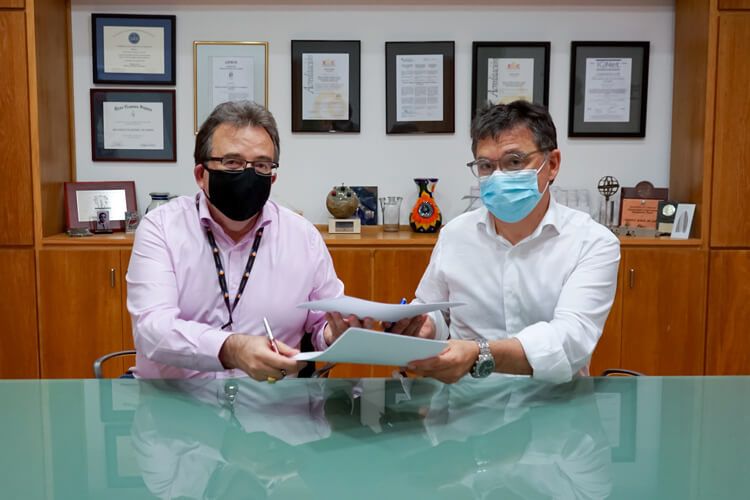Pharmacokinetic and Efficacy Studies

IQS and the company Xenopat recently signed a collaboration agreement to carry out joint research projects concerning cancer and offer services to third parties by combining both entities’ experience, including ADME-Tox, computational prediction, and in vivo efficacy studies, among other pharmacokinetic studies. This partnership combines IQS and Xenopat’s areas of activity and expertise: molecular and computational design, organic synthesis, the use of advanced analytical techniques, and in vivo experiments, both in models derived from cell lines and with Orthoxenograft® models (xenograft models derived from patients and implanted in mice organs, including the colon, melanoma, lung, breast, ovary, and pancreas, among others).
By partnering together, their combined offer presents high-quality integrated services.
IQS’s collaboration will be spearheaded by the Pharmaceutical Chemistry Group (GQF) research group within the IQS School of Engineering, coordinated by Dr José I. Borrell, contributing its experience in computational chemistry and organic synthesis. As Dr Borrell stated, “thanks to this collaboration, our group is expanding its knowledge and services in the field of ADME-Tox pharmacokinetics, both from the computational point of view and in terms of experimental determination.”
It is also worth mentioning that Xenopat is a spinoff of the Catalan Institute of Oncology (ICO) with the Bellvitge Biomedical Research Institute (IDIBELL) and the Bellvitge University Hospital (HUB), founded by Dr Alberto Villanueva, Mr August Vidal, and Dr Anna Portela. Their areas of expertise include personalized cancer treatment, advanced preclinical services, and developing new anti-tumour drugs based on the use of xenograft models.
In the words of Dr Alberto Villanueva, scientific director and co-founder of Xenopat: “With this collaboration, Xenopat is expanding its range of services and is able to offer its clients synthesis services, compound determinations in fluids and tissues, as well as bioinformatic predictions. We also hope to be able to help IQS’s clients with our in vivo services.”
Integrated ADME-Tox and preclinical efficacy services
The characterization of Absorption, Distribution, Metabolism, and Excretion (also known as ADME) and Toxicity (ADME-Tox) are essential steps in drug development. Predictions of parameters such as solubility, pKa, log P, membrane permeability, the ability to cross the blood-brain barrier (BBB), metabolic stability, and toxicity are very important in making decisions about the development of a possible candidate. The Pharmaceutical Chemistry Group at IQS is home to the latest computational tools to predict these properties quickly and accurately, through 2D and 3D structures of a composite.
In addition, the pre-clinical efficacy studies carried out by Xenopat make it possible to test the drug in vivo, both in terms of independent treatments and in combinations, and to evaluate tumour response in terms of weight/volume and histological response. These studies can be performed in cell line derived models and in patient derived models. The most advanced models (patient derivatives, orthoxenografts®) make it possible to carry out key studies for regulatory agencies and lead initial clinical trials with confidence.

